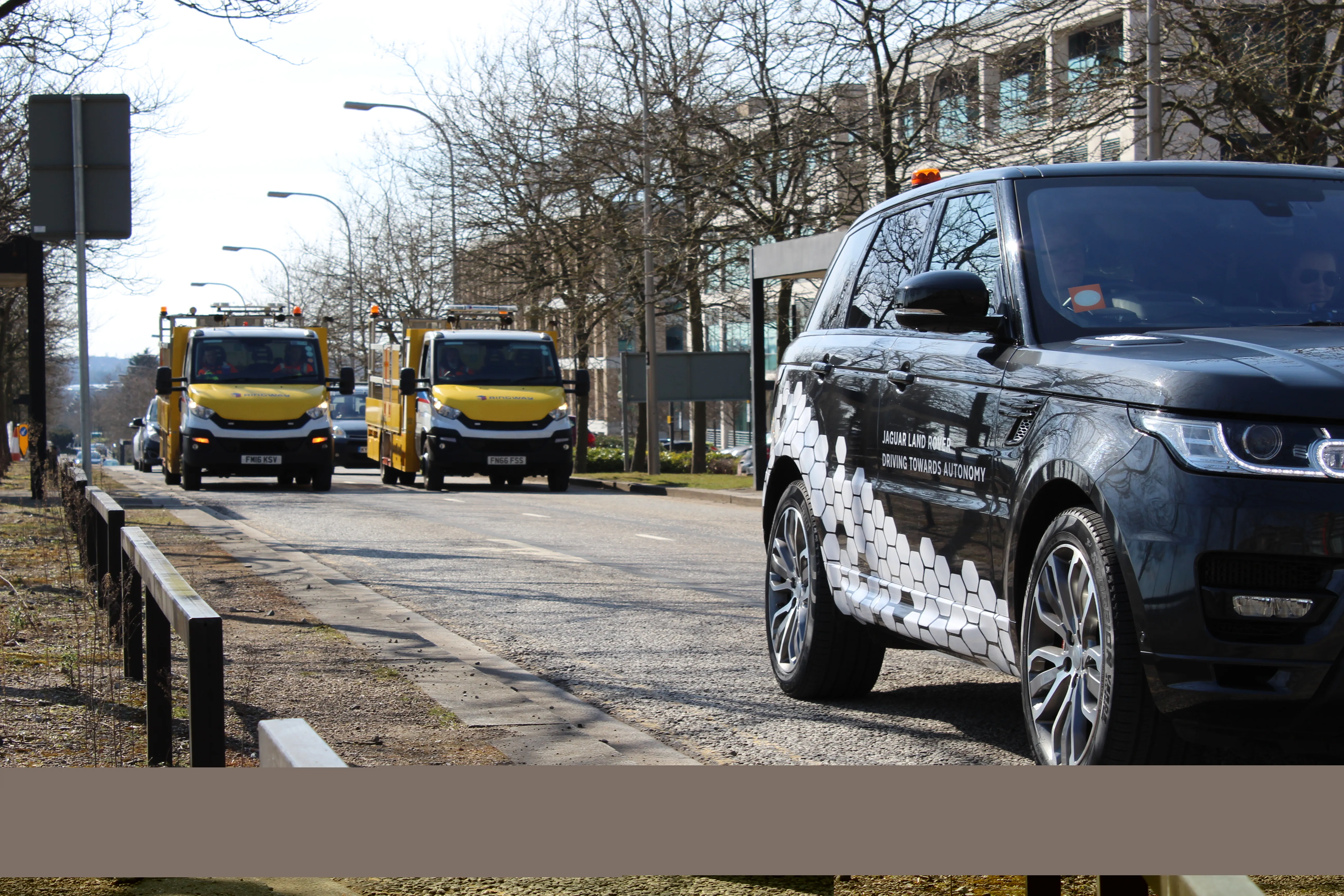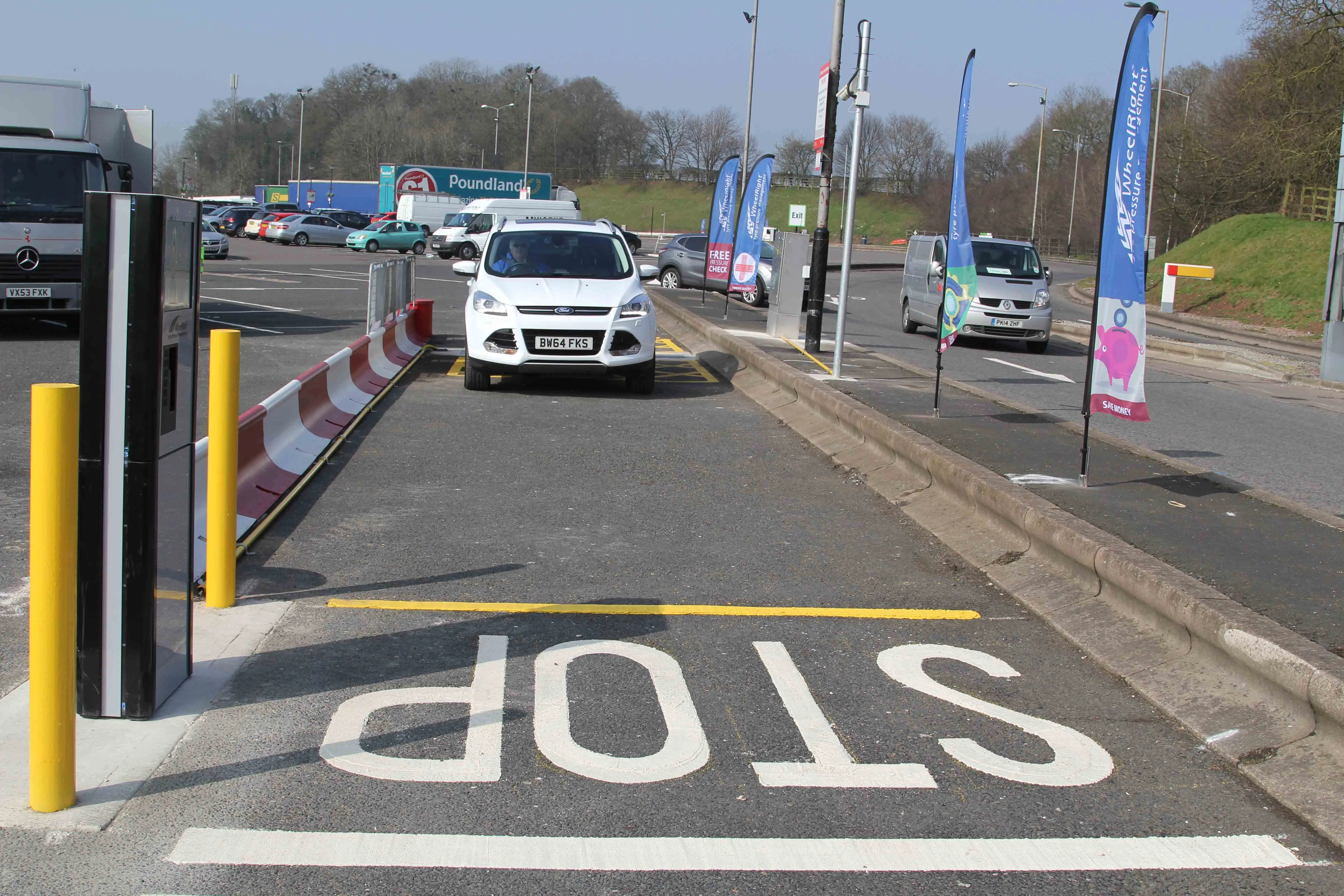
For the three-day test, two Ringway trucks provided a rolling roadblock behind an autonomous Jaguar Land Rover passenger vehicle. The trucks were there to ensure other highways users were safe and not inconvenienced by the tests, according to Ringway.
Ringway also supplied two supervisors and two traffic management vehicles.
The trial by UK Autodrive was demonstrating new technology that allows connected vehicles to share information about parking availability and provide an early warning to drivers when an emergency vehicle is approaching.
“Not only do we want to facilitate UK Autodrive’s pioneering trial, but we want to learn ourselves about the opportunities that autonomous vehicles can offer to one day improve the services we provide,” said John Nicholson, Ringway regional director.
UK Autodrive is a three-year project for trialling connected and self-driving vehicles on the streets of Milton Keynes and Coventry. UK Autodrive, which will end in October, is conducted by the largest of three consortia that are trialling automated vehicle technology as part of a UK government-backed competition to support the introduction of self-driving vehicles. Trials are also taking place in the London borough of Greenwich and in Bristol, southwest England.
Designed and built by Coventry-based firm RDM Group, the electric-powered vehicles will examine the feasibility of low-speed autonomous transport systems to move people within urban areas. During the early stages of the trial, trained operators will sit in each pod. Later on as part of the trial, a selected group of local people will be able to call up and use the pods.
Ringway’s business in Milton Keynes has also fitted a network of more than 1,000 intelligent sensors around the city. Drivers will soon be able to use to receive real-time parking information to an app on their mobile phones.
The UK government’s Department for Transport and the Department for Business, Innovation and Skills, working with the Technology Strategy Board, are investing up to nearly €11.5 million in collaborative research and development exploring how driverless cars can be integrated into everyday life in the UK.








